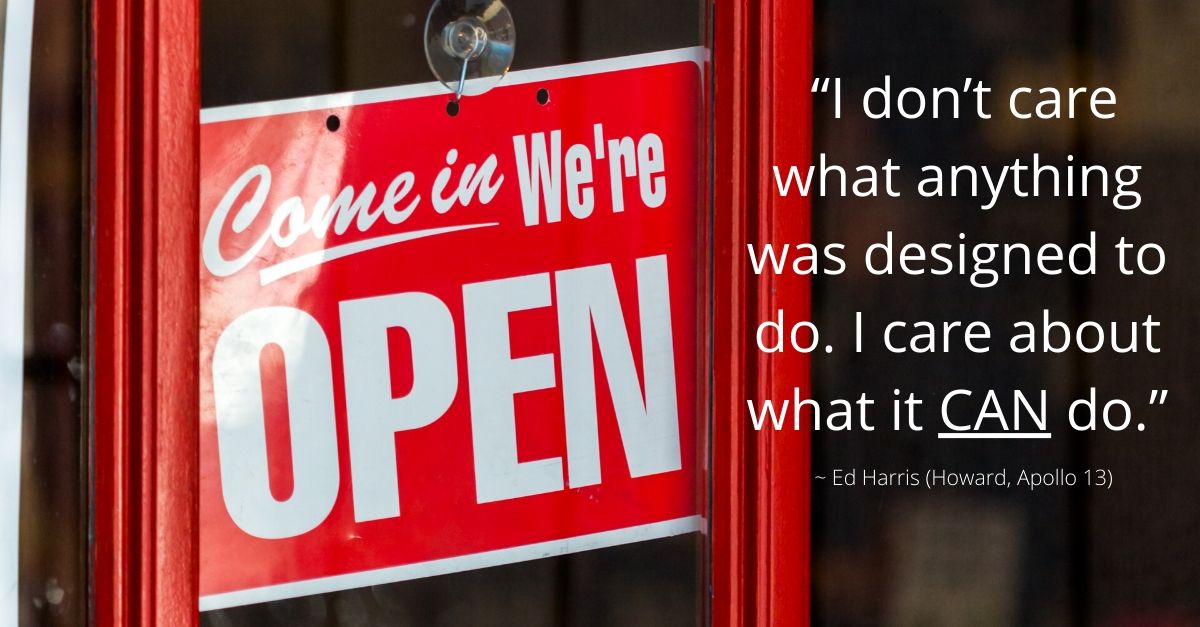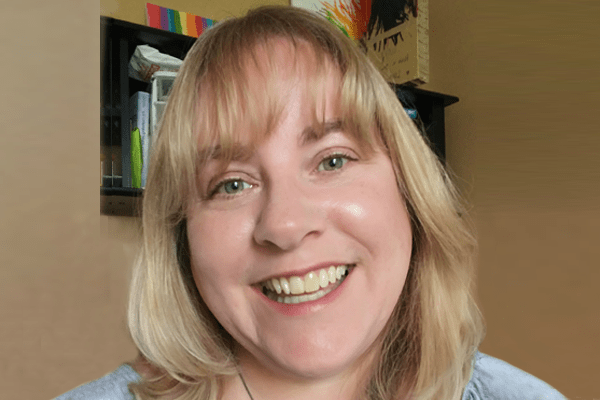
In the movie Apollo 13, Gene Krantz, the NASA flight director, asked the engineering team for the ill-fated flight to work with whoever they needed to in order to get the crew home safely. “I don’t care what anything was designed to do,” he said, “I care about what it CAN do.”
Although it will be some time before the entirety of the damage can be calculated in the wake of the global COVID-19 pandemic, experts, statisticians and associations are already making predictions. The crisis has certainly placed a magnifying glass on the areas that we, as a society, have long ignored in terms of our care of the most vulnerable in our communities and our level of personal and professional preparedness. More information will come to light. More blame will be placed. We are far from done.
Still, at this date, it seems that we are also stalling in terms of dealing with the issues. Decisions are made in reaction to new data and modeling, to cries for assistance, to economic considerations. At the beginning of this crisis, this was necessary, but like the spread of the virus, we seem to be stuck here.
Of course, there are very real and harsh realities for some that must be dealt with quickly and some of those issues are changing day to day, but the longer we stay stuck in reaction, the longer it will take to come back to our new normal.
My passion is for small businesses and the unique character they add to our communities. The Canadian Federation of Independent Business (CFIB) is already predicting that 3 in 10 independent businesses will never reopen. Just among CFIB members, that is 35,000 businesses across Canada.
Take a moment to take that in. 35,000 entrepreneurs will lose everything. And for those who do survive the lockdown, the average cost of the pandemic on small business is approximated to be nearly $215,000 in fixed costs and lost revenue, so the number of independent operations that will close forever will rise in the near term, despite reopening in the immediate aftermath.
It’s time to be practical, get proactive, pivot and partner to not only survive, but to succeed.
This isn’t about politics, it’s about adapting to the new normal. This is not business as usual. And no one really knows what business as usual will become.
Practicality
For the independent business, special consideration must be taken now to make decisions that are practical and workable in the near-term and in planning for the future. What can you do right now – today – that will boost your business? What can your local business association, business improvement area, chamber of commerce, board of trade or municipal or regional economic development department do right now to support practical solutions and help prepare you for the end of the lockdown?
Though seemingly practical, gift cards are not really the answer. They are not practical to consumers who are worried about their own financial situations with no idea on when it may change and worried you won’t reopen or survive and they will be stuck with a gift card with no value. Think about what is practical for your customers.
Proactive
Certain types of service businesses have been little harder hit and will need to wait a little longer to fully emerge from lockdown. But, even here, there are opportunities to continue connecting with your customers.
Recreational and fitness services are needed more than ever before. Change the way you work – bring recreation and fitness to the people where they are. Go neighbourhood by neighbourhood and offer driveway workouts or dance parties for the families that are sequestered there trying to keep their kids active and engaged. Teach meditation exercises online or in the neighbourhood to ease some of the mental health challenges being faced. Start actively engaging with the community.
Pivoting
The business models for independent businesses are changing – and those who hold on to their old models will most definitely find themselves among the casualties of this outbreak. It’s the core of entrepreneurship to be adaptable and able to pivot to the changing landscape. This is an unprecedented situation, and the changes have come suddenly and harshly, but weeks into the lockdown over which you have no control, reworking your business model should be a priority and you should be ready to take on the current challenges and full out planning for the next normal.
Whatever you have done in the past is irrelevant. What can you do now? What can you do to remain relevant to your customers? If you have a digital presence, you need to look into investing in that asset. If you don’t have a digital presence, you need to determine whether you need one. Ecommerce is not the solution for everyone, but it can be a low overhead option to stay in the game for independent retailers and wholesalers. Anyone who has a product can sell online. It’s time to pivot and offer practical solutions to your members, your constituents, your neighbours and your taxpayers.
Partnering
Independent businesses are competitive with each other and the big box stores and chains who have the liquidity to survive downturns, and in some cases have enjoyed months of operation without any competition. But, in these unprecedented times, partnering with your fellow entrepreneurs can improve both of your outcomes. Again, you need to get creative.
A florist could partner with a toy, book or giftware store to offer special occasion packages. A mechanic could partner with a car wash, detailer, or gas station or even a local restaurant to provide deeper levels of product and services.
Find ways to participate in the economy by any means.
Business associations and economic development teams can learn this principle as well. Partner with local businesses and services that can support local businesses. Digital directories with information specific to the impact of the reopening are a quick tweak for local providers who already maintain such tools – like we do at Emoggo. Training on the practical considerations for businesses – whether they are open, partially open or closed – including health and safety from your health department, human resource management, taxation and financial supports and future planning – is needed for the re-opening phases and beyond.
Don’t think about what your business or organization was designed to do. Think about what it can do. Be practical, get proactive, pivot and partner – re-imagine your business, your relationships and your offerings to thrive in a post-pandemic economy.

About the Author: This is me! My passion lies in leveraging today’s technology to create, support and engage communities and drive measurable economic growth. Like many, I yearn for a time when fear won’t dominate actions, where local shops thrive and people understand the value and power of local investment, in all it’s forms.
~ Lisa Denis, Founder
